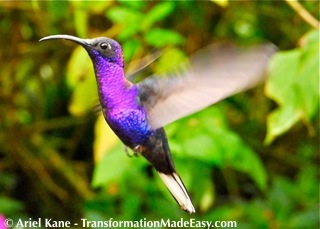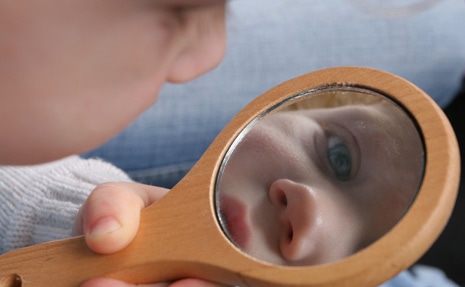Creativity
 Human beings by nature are creative. We have however, recorded everything that has happened in our past and linked it to our creative process, leading us to erroneously form the point of view that the creative process itself is a function of our struggling, our painful past or our “neurosis.” And if we were to lose that neurosis, our mind thinks that our artistic abilities would be lost as well.
Human beings by nature are creative. We have however, recorded everything that has happened in our past and linked it to our creative process, leading us to erroneously form the point of view that the creative process itself is a function of our struggling, our painful past or our “neurosis.” And if we were to lose that neurosis, our mind thinks that our artistic abilities would be lost as well.
A woman once attended one of our seminars and balked at the idea of letting go of her emotional pain. The sudden loss of her husband had been a major turning point in her life. The time following his death was extremely painful, sad and yet creative, too. Thrust by unfortunate circumstance into a completely different life, the new widow found herself surprisingly capable, increasingly directed and vitally alive. A year later, she was still nurturing the pain and sadness as well as her new found sense of herself. She was afraid, she explained, that if she let go of the pain, anger and sadness she would lose what she had gained in the past year. The shocking loss and ensuing pain had acted as a catalytic agent which sparked her creativity. Her mind then stored all aspects of this time period, and compressed them into a single strategy for success. As we coached her to look, she discovered she was now ready and willing to have the creativity without the pain.
With awareness, you can melt the aspects of your way of being that do not truly produce the results you want, in effect distilling the creative process. No longer does the word “struggling” have to be linked to artist. No longer do pain and neurosis have to be the companion to creativity.
Our creativity is inhibited by past decisions that we have made about our own ability to create. Let’s say, for instance, while growing up, you were not a very good writer of book reports in school. Perhaps one day you got a report back and written on it was a bright red “D” with the words, “Below Average!” The mind records the physical sensations that accompany the grade and also a statement that goes something like, “I am not very good at writing. I am Below Average!”. This statement is available to play back every time you write a new document. The statement may have been true when you were in grammar school, but it may not be true for the adult person that you have become. The problem is that every time you sit down to create something, that recording of, “I am not very good at writing. I am Below Average”, can jump forward between you and the blank page.
Another thing that hinders the creative process is our own internal self-governor or critic. Looking over something you have written, for instance and evaluating it for merit, syntax, grammar, spelling, etc. is obviously a useful thing to do, but timing is everything. Many people apply the process of judging and evaluating their work as they go. This blocks the flow, stops continuity and does not allow for ideas to complete themselves because the sentence, paragraph or idea is being amended even as it is coming into being.
Webster’s dictionary defines “create” as: to cause to come into existence; bring into being; make; originate. Whether you are an artist, working with your hands, applying paint to canvas, writing music or standing on a stage and bringing a character to life it is important to include one detail. The creative process is like the gestation period for a child which one hopes will be born in good health. A little bit of poison can go a long way towards altering the health of the child. Our self-judgments act like poison. If you want to expand your ability to be creative, practice the art of being kind to yourself. Contrary to what some believe, being self critical and hard on yourself does not lead to better quality work. If you are not vigorously chastising mistakes you will not suddenly become complacent and let your work slide. Rather you may find yourself encouraged to take bigger risks and watch as what seems to be a mistake to the judgmental mind turns into something shiny and new that was never even conceived of before.
When one truly creates, one stands in the moment and interacts directly with his or her environment. Not through the filter of thought. Not through one’s personal history. It is a direct expression of the being.
Since 1987, internationally acclaimed authors, seminar leaders, podcast/radio show hosts and business consultants Ariel and Shya Kane have acted as guides, leading people through the swamp of the mind into the clarity and brilliance of the moment. Find out more about the Kanes, their seminars in NYC, Germany and Costa Rica, the Say YES to Your Life! Meetups their work has inspired, their Being Here podcast or join their email newsletter. Also get information about their award-winning books. Their newest book, Being Here…Too, is available on Amazon.com, BarnesandNoble.com and everywhere books are sold.






